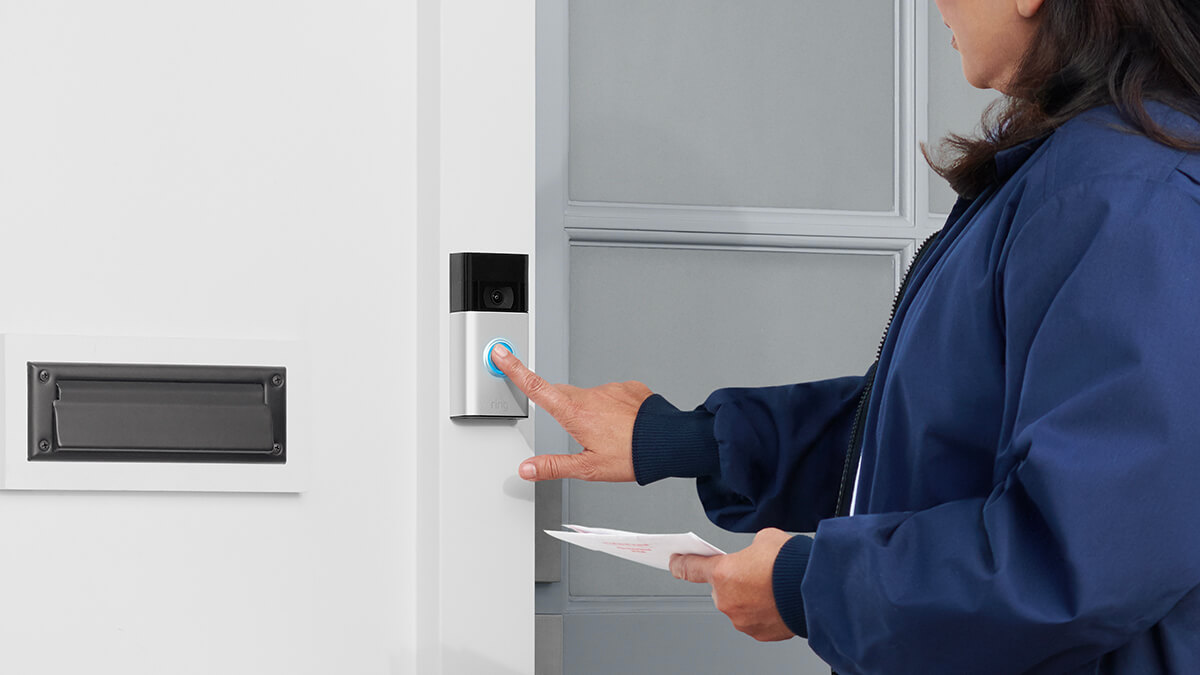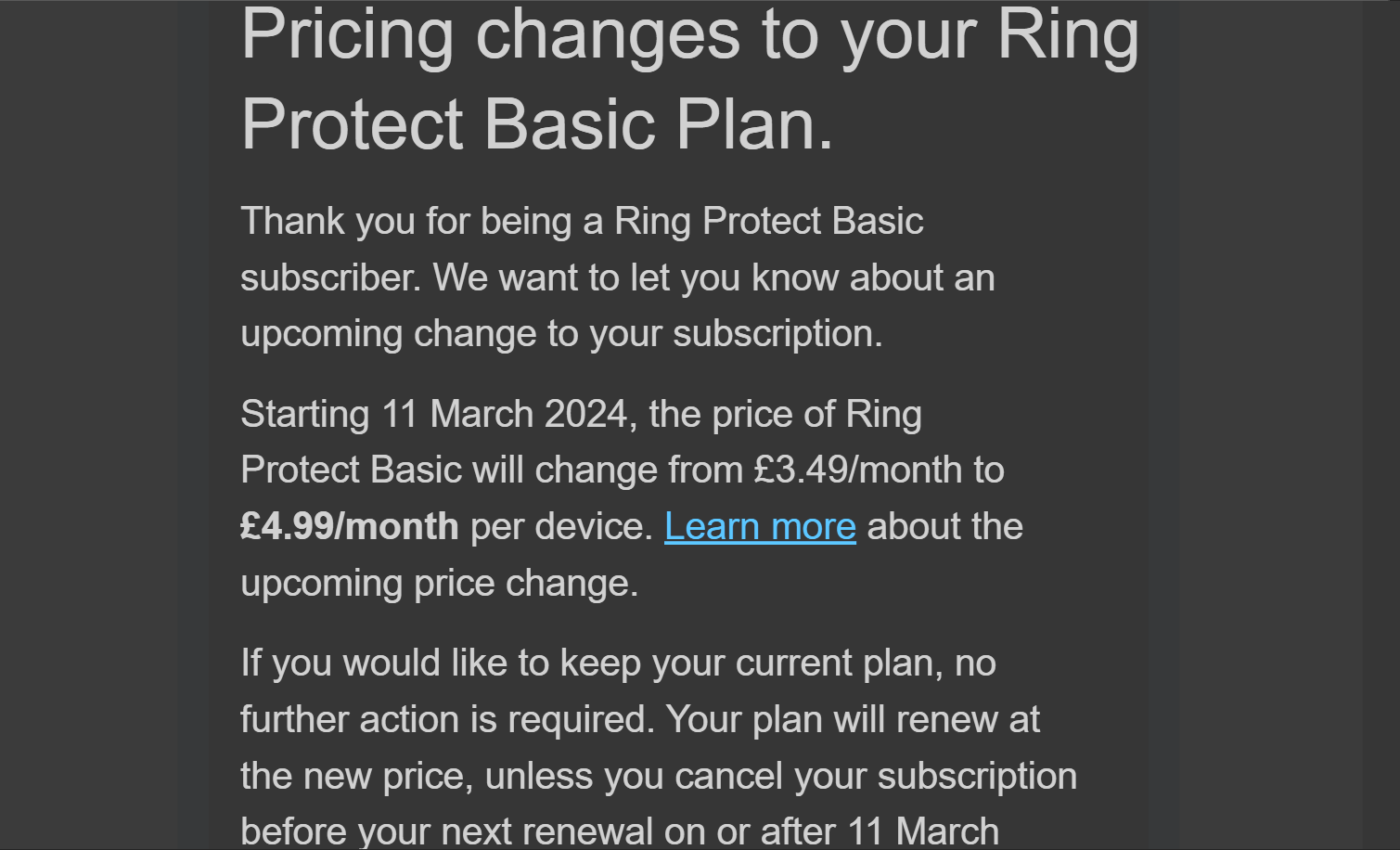What just happened? Everything is becoming more expensive these days, including your Ring video doorbell's subscription price. The cheapest Basic subscription is increasing from $4 to $5 per month, or from $40 to $50 if you pay annually. If you're wondering what new features or benefits you get for that extra money, the answer is none.
In an email sent to customers, Amazon-owned Ring explains that the Ring Protect Basic Plan will increase by $1 per month (or £1.50 in the UK) starting March 11, 2024.
An extra $1 per month or $10 per year might not seem like a lot, especially when rival companies have raised their prices by larger amounts in recent times. As noted by The Verge, Arlo's single-camera subscription price went up to $7.99 per month from $4.99 in January, while Google Nest's cheapest plan jumped to $8 per month from $6 per month late last year, though that covered every camera associated with an account. But Ring is increasing its price by 25% (43% in the UK), and you get no new features for the money. Ring doesn't even give a reason for its price hike in the email.
It's also worth remembering that the last time Ring increased its Basic plan price by $1 per month, back in June 2022, it added a number of new perks, including extra cloud storage, larger bulk video downloads, and discounts on future Ring products.
It's likely that the price hike is designed to push customers onto the next tier, which costs $10 a month or $100 a year and covers unlimited cameras.
For most owners of the company's video doorbells, a Ring subscription is an essential extra. It allows users to save and record videos – from a single camera, on the Basic Plan – so they can be accessed later. Without a subscription, the cameras can only stream live and send motion alerts, which is not very useful for reviewing past footage to identify unauthorized entries into your property.
There are video doorbell companies that offer cheaper plans, including Blink and Wyze, both of which charge $3 per month and offer local storage options. And iCloud+ subscribers might be wise to use a device that supports Apple HomeKit Secure Video.

